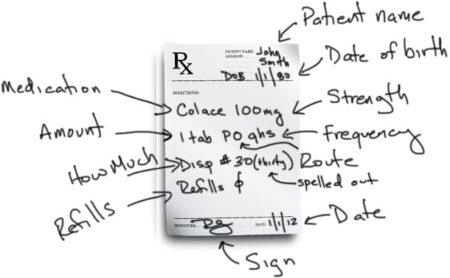3 April 2020
By Elaine Murphy
elaine@TheCork.ie
- Minister for Health Signs Regulations to Assist with Prescriptions during COVID-19
- Another traditional paper-based system goes digital during crisis
Minister for Health Simon Harris has today (Friday, April 3rd) signed two statutory instruments to relieve some of the pressures on our GPs, pharmacists and patients in accessing prescriptions.
The Minister signed the Medicinal Products (Prescription and Control of Supply) (Amendment) Regulations 2020 allowing for the electronic transfer of prescriptions to a pharmacy via an approved electronic system: the HSE’s Healthmail system.
In addition, the maximum period of validity of a prescription is increased from 6 months to 9 months as of the date specified on the prescription.
Some temporary changes to the way in which prescriptions can be repeated are also being introduced to enable pharmacists to ensure the continuity of care of patients without necessarily requiring a new prescription.
Speaking today, Minister Harris said: “We are asking people to stay home. We know many people will still require access to important medicines and that is why we are introducing these measures. However, I also want to remind patients and the general public not to seek supplies of medicines over and above their normal requirements. Doing so will hamper the supply of medicines for others.
“The changes we will make today will relieve the pressure on GPs and pharmacists. Crucially, it will reduce the need for people to visit their GP or pharmacy during this pandemic.
“I want to thank our healthcare staff, my Department and the HSE for their work on this matter. This is a significant step and will help us in our efforts to slow the spread of this virus.”
More information
A number of urgent amendments to the Medicinal Products (Prescription and Control of Supply) Regulations 2003 and the Misuse of Drugs Regulations 2017, have been signed into law by the Minister for Health on the 2nd April 2020. These were considered necessary in order to respond to the current COVID 19 emergency.
The key amendments being introduced can be summarised as follows:
1. The electronic transfer of prescriptions
To provide for the electronic transfer of prescriptions, both public GMS prescriptions and private prescriptions, from a prescriber to a pharmacy via an electronic system approved by the HSE- the HSE’s Healthmail system*.
This will remove the requirement for a paper copy of a prescription to be forwarded to a pharmacy as long as it is sent and received through the closed-system electronic service.
This provision will reduce the need for a patent to attend at a surgery to collect a prescription during the emergency. Other methods of transfer such as private emails of faxes will not be recognised as legitimate prescriptions and the original prescription must be presented at the pharmacy at the time of dispensing.
*Healthmail is a secure clinical email service in operation since 2014 that allows health care providers to send and receive clinical patient information in a secure manner. Using Healthmail, patient identifiable clinical information, and now prescriptions, can be shared between healthcare professionals. Healthmail is configured to be easy to use and has improved electronic communication for the benefit of patients and clinicians.
2. Validity period of prescriptions
The maximum period of validity of a prescription for non-controlled drugs is temporarily increased from 6 months to 9 months as of the date specified on the prescription.
3. Repeat Prescriptions
Some temporary changes to the way in which prescriptions can be repeated by pharmacists are being introduced to enable pharmacists to ensure the continuity of care of patients without necessarily requiring a new prescription to be obtained from their prescriber. Where it is the professional judgement of the pharmacist that it is safe, appropriate and necessary for the continued treatment of the person for a further supply to be made, and it is unreasonable at this time for the person to obtain a new prescription, then the pharmacist can make further supplies against existing prescriptions for certain types of medicines.
The Pharmaceutical Society of Ireland and the Medical Council will be issuing joint guidance for Pharmacists and Prescribers in relation to these amendments.
4. Medicine supplies
There have been no reports of Covid-19 impacting on the general supply of medicines to Ireland. However, international authorities, including the European Medicines Agency, remain vigilant to any potential risk. In Ireland, the Department of Health and the Health Products Regulatory Authority is working as part of this wider EU response to Covid-19.
There are already additional stocks of medicines routinely built into the Irish medicine supply chain. Therefore, Ireland is unlikely to face general medicines supply issues now or in the near future as a result of any potential delays in the supply chain caused by Covid-19 related issues.
In the case of medicines used most often in Ireland, there are typically multiple forms and brands available from a range of sources. In the event that there are some supply issues for individual medicines, it is expected that alternative brands will be available to ensure continuity of treatment.
Ireland has an existing Medicine Shortages Framework in place to help prevent shortages from occurring and to reduce the impact of shortages on patients and healthcare professionals whereby the HPRA co-ordinates the management of potential or actual shortages as they arise, in cooperation with a range of stakeholders.
However, this is very much based on normal use of medicines. There is no need for hospitals or healthcare professionals to order extra quantities of medicines, or for doctors to issue additional prescriptions. Similarly, patients and the general public are asked not to seek supplies of medicines over and above their normal requirements. Doing so will disrupt existing stock levels and hamper the supply of medicines for others.


